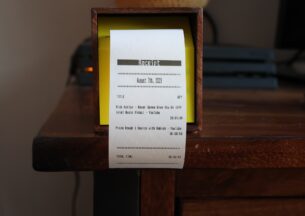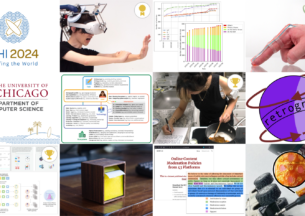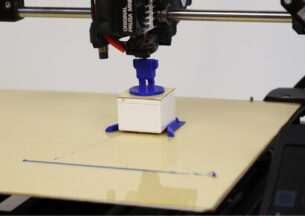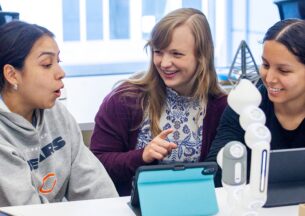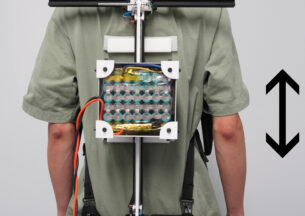High School Students Find Their Place in Computing Through Wearables Workshop
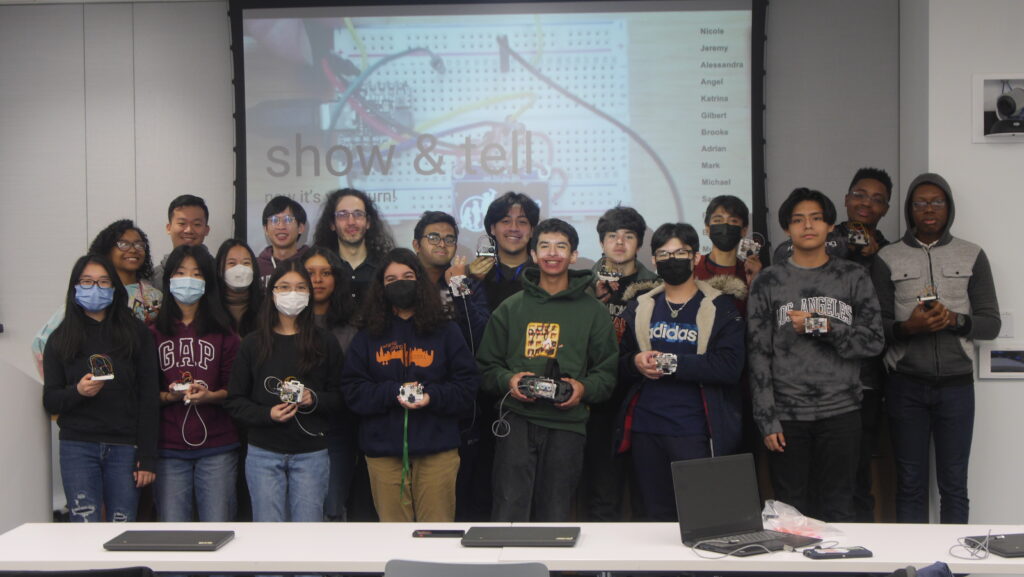
Helping someone suffering from schizophrenia determine reality; an alarm to help maintain distance during COVID; adding a fun gamification element to exercise. These were just some of the innovative ideas presented by high school students who attended the most recent hands-on Broadening Participation in Computing workshop at the University of Chicago.
Students spent three days immersing themselves in the basics of microcontrollers and electronics, culminating with the construction of their own devices in a “Make Your Own Wearables From Scratch” workshop taught by UChicago CS Assistant Professor Pedro Lopes and graduate students Jasmine Lu, Shan-Yuan Teng, and Romain Nith. On day three, the workshop participants presented their functional, wearable creations built with microcontrollers, sensors, and actuators. Presentations included the opportunity to describe their design process and the intended use of the device.
“Students came in with close to no experience on electronics, which is normal,” said Lopes. “While high schools are now starting to include some coding experience and maybe some preliminary plug-and-play styles of robotic kits, this is still far from what we taught them: to wire up circuits to microcontrollers, from scratch on a breadboard.”
Each student was given a full workshop kit containing one sensor, one OLED display, a microcontroller, and multiple small components. Using these tools, students learned simple electronic concepts such as how currents flow through LEDs, diodes, and resistors. Some concepts were a little more advanced, like how different sensors work, how to send and read data from their sensors, and how to connect everything in a stand-alone way. For most of the workshop, students were learning through doing.
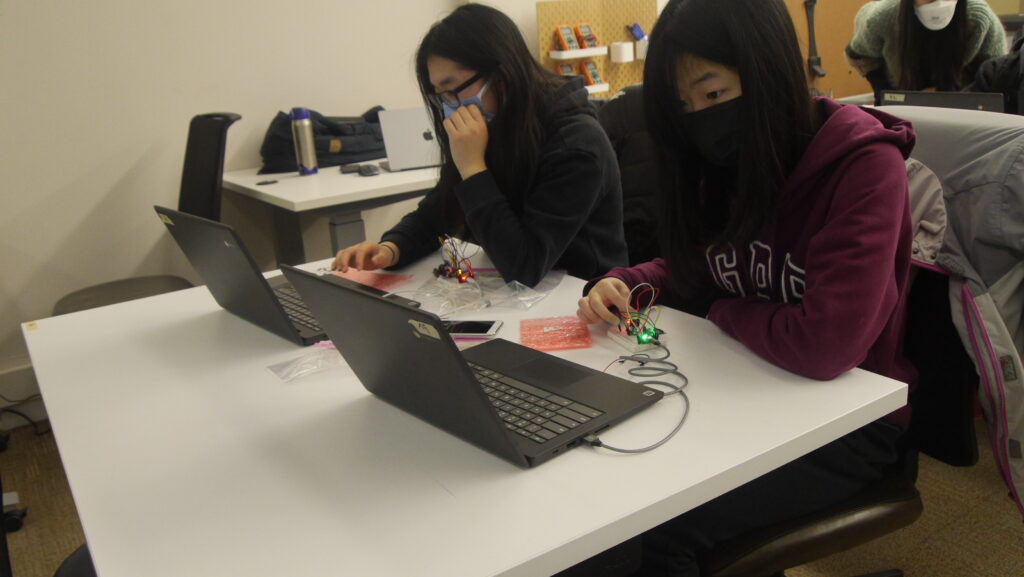
“We had small lessons around how to work with individual electronic components, but each lesson was followed with some sort of hands-on exercise for students to complete on their own,” said Lu. “We also split our workshop into chunks where students could have a lot of time to get creative in building their wearable device and exploring new things beyond our prepared instructional materials. We provided support and guidance but allowed the students to take the reins in prototyping with whatever they were most interested in.”
Although having prior experience was not needed to take part in the workshop, this was not the first UChicago STEM session for a lot of students. Lane Tech High School senior, Bryson Hill, had already taken more than five enrichment courses through the program, one of which he credits with helping him find his future major.
“I believe I found my major, which is Biomedical Engineering.” Hill stated. I realized I wanted to do something ethical and have my results be based on my efforts. I also wanted to do medicine, but not be a doctor. I landed on biomedical engineering.”
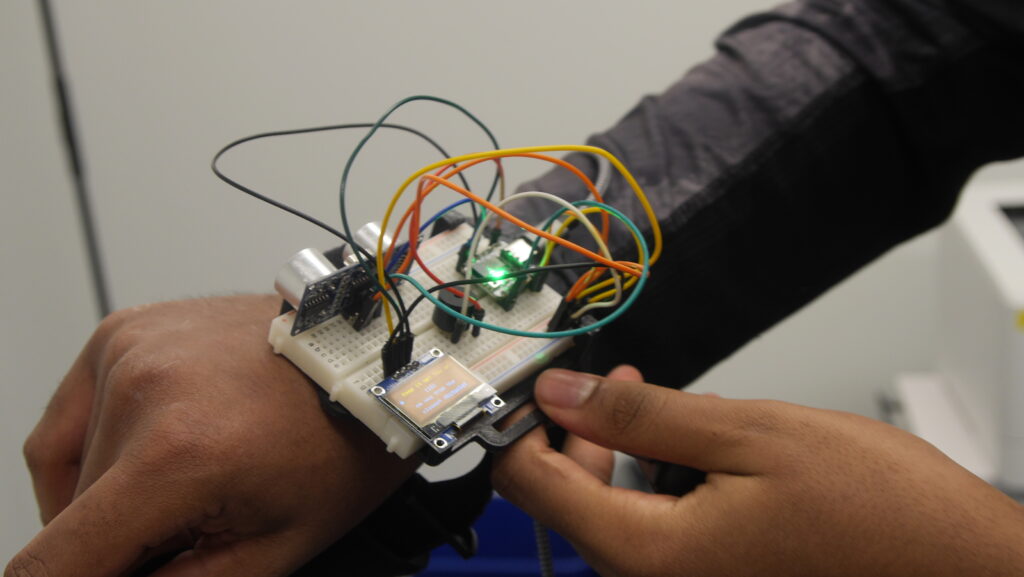
The wearables workshop allowed Hill to hone in on exactly what he wanted to do within biomedical engineering and see the possibilities that wearable devices could bring to the field. The device that he created over the course of the two days used ultrasound and echolocation to detect nearby objects and alert the user that they were in danger.
Hill thinks the device could be useful in helping someone with schizophrenia determine reality, or simply keep someone who is on their phone and not paying attention from running into a wall. While it’s not exactly a biomedical device as it stands, going through the process of building the device gave Hill a better understanding of what he’d like to create in the future, such as a device that automatically gives diabetes patients insulin when they need it.
Other students used the workshop simply to build up confidence in their computing abilities. Brooke Whitehead of Gwendolyn Brooks High School had already taken a computer science class, but felt she had room to improve.
“I took a computer science class last year and didn’t do so great. I thought if I tried again, maybe I could get better.” Whitehead said. “I took this workshop and now I’m like, ‘oh my God, I made something.’ That’s awesome.”
The approachability of the workshop made a big difference for Whitehead.
“When I would ask questions, especially during the learning process, I was glad that we had helpers there so I could be like, ‘hey, do you know how to help me with this? Do you have any ideas to get me started?’ I’m really glad they were able to help me in a way that I could understand.”
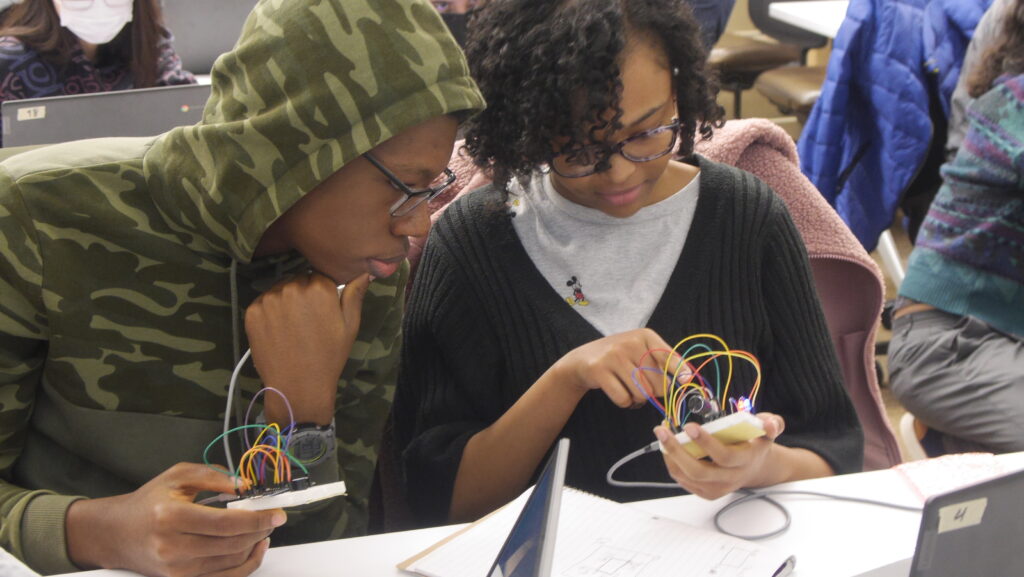
Now Whitehead feels confident that she can use the information she learned to help her in her future career as well.
“I find science really interesting, and this STEM course was still science-based. I want to get into forensics or biochemistry, and I know I might need to use computers for organizing information, coding programs, or maybe something else. So it was cool that I was able to understand it so well; actually be able to do it.”
A cornerstone of the departmental BPC program is to make an impact on high school students from first-generation, low-income, and historically underserved backgrounds through sustained engagement. Central to the high school BPC efforts is a collaboration with the Office of Civic Engagement College Readiness and Access (CRA) Programs.
“This win-win partnership enriches the CRA programming and connects UChicago CS faculty and grad students with local high schoolers,” said Randall Landsberg, Education Outreach Director for UChicago CS. “Programming, like this workshop, with tangible hands-on experiences and near-peer role models helps students to see computing as creative and cooperative, and as a place where they belong.”
This workshop was made possible by a grant from the Successful Pathways from School to Work initiative of the University of Chicago, funded by the Hymen Milgrom Supporting Organization. For more information on the BPC program or how you can get involved, contact the EDI committee or visit the website here.



